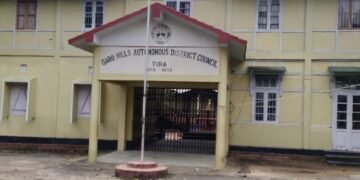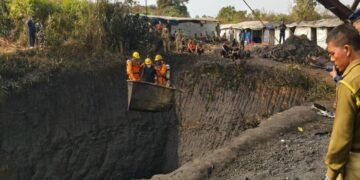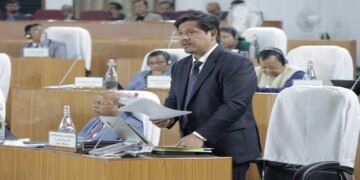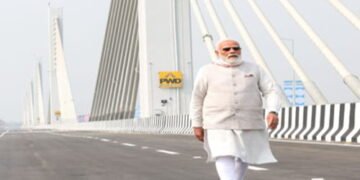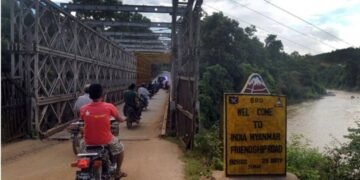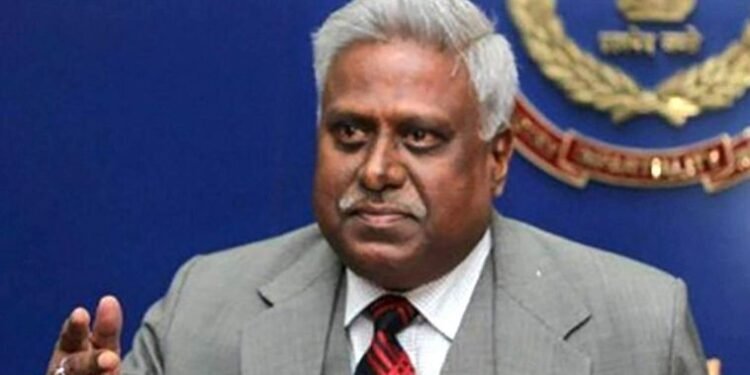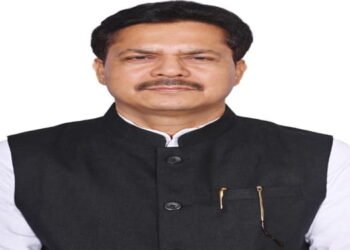New Delhi , April 16 : Former CBI director Ranjit Sinha died here on Friday morning in what is believed to be a COVID-19 related death, senior officials said.
He was 68. It is understood that he was confirmed positive for coronavirus on Thursday night and breathed his last at 4.30 am on Friday, the officials said.
Sinha, a 1974-batch officer of the Bihar cadre and who had cracked the coveted UPSC examination at the age of 21, had taken over as the CBI chief in 2012. He had previously headed the Indo-Tibetan Border Police (ITBP) force, the Railway Protection Force and served at senior positions in the CBI in Patna and Delhi during his four-decade-long career in police service.
“DG and all ranks of ITBP express their deepest condolences on sad demise of Sh Ranjit Sinha, former DG ITBP today. He served the force from September 1, 2011 to December 19, 2012 as DG and earlier as ADG and will always be remembered for his professional acumen and exceptional leadership. May his soul rest in peace,” the ITBP said in a statement.
An MPhil from the Indian Institute of Public Administration, Sinha was an avid reader and writer and a regular contributor on police-related issues in various journals and magazines.
A recipient of Police Medal for Meritorious Service and the President’s Police Medal for Distinguished Service, Sinha served as SSP in Ranchi, Madhubani and Saharsa districts and also as DIG of Naxal-affected Magadh Range in Bihar.
Sinha’s stint as CBI chief was marred by several controversies as he had to face the heat from the Supreme Court repeatedly between 2012-14.
It was during his stint as the CBI chief that the Supreme Court had slammed Sinha in May 2013 for compromising the agency’s autonomy by sharing the probe report in the coal scam with then law minister Ashwini Kumar and government officials in violation of its order. This had prompted the court to denounce the premier agency as a “caged parrot”.
Although the court did not take any action against Sinha, the controversy led to the resignation of then law minister Ashwini Kumar and additional solicitor general Haren Rawal who had informed the court that the report was not shown to anyone else before being submitted before the court.
Sinha kept a low profile during the 40 years of his service, but during his stint as the CBI Director he had a brush with several controversies.
In a rare instance, the CBI started probing its own former director after a visitor’s diary surfaced that showed Sinha regularly meeting coal and 2G scam accused at his official residence.
The visitor’s diary also revealed that Sinha had met Moin Qureshi, a meat exporter being probed by the ED and other agencies, over 70 times at his residence in 15 months.
Taking note of the diary, the Supreme Court issued notice to Sinha in September 2014, directing him to explain why he had privately met some of the key accused in the coal and 2G allocation scam at his official residence.
The Supreme Court in an unprecedented order in November 2014 directed Sinha to completely keep off the 2G case as it found prima facie “credible” the charges that he had attempted to help the accused in the scam.
“We direct the CBI director not to interfere in the 2G scam investigation or prosecution. He will recuse himself from the case,” the Supreme Court had said then.
Sinha had rejected the allegations in an affidavit that he submitted to the Supreme court.
In his affidavit filed before the top court, Sinha argued that as a Z-category protectee, he got security cover from the Delhi Police and it was the police which maintained a register to record his movements and another to log the entry of their own personnel.
Sinha faced another setback when the CBI booked him in April 2017 under the Prevention of Corruption Act for allegedly scuttling and influencing the probe in the coal scam case.
Sinha, after his controversial tenure, had said, ‘Right or wrong – that time will judge me’.
The 1974 batch IPS officer also had a brush-up with former Railway Minister Mamata Banerjee. After Banerjee resigned as Railway Minister in 2011 to become the Chief Minister of West Bengal, Sinha had objected to the RPF security provided to her.
But it was also during his stint that the CBI took up the case against the then Railway Minister Pawan Bansal in 2013 in connection with the cash-for-posting scam. Bansal had to resign as Minister at that time.
A number of former CBI officials, with whom IANS spoke, described Sinha as a bold and practical officer.
A former CBI official wishing not to be named said that Sinha never cared for his reputation before taking a decision. He was “bold” and had the ability to take decisions quickly on several matters.
“He never hesitated in taking action despite knowing the consequences,” he added.
( With Agency inputs)



